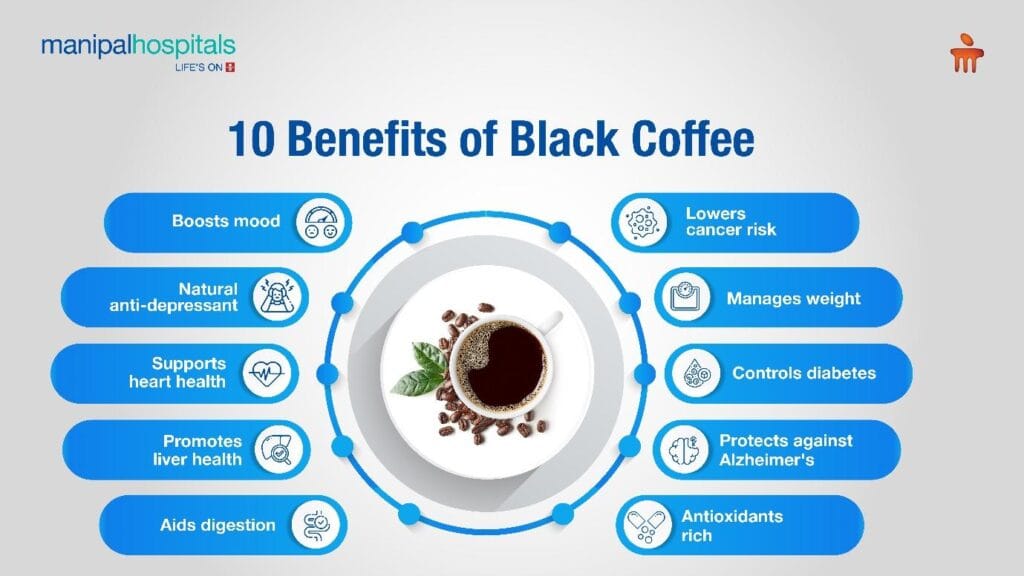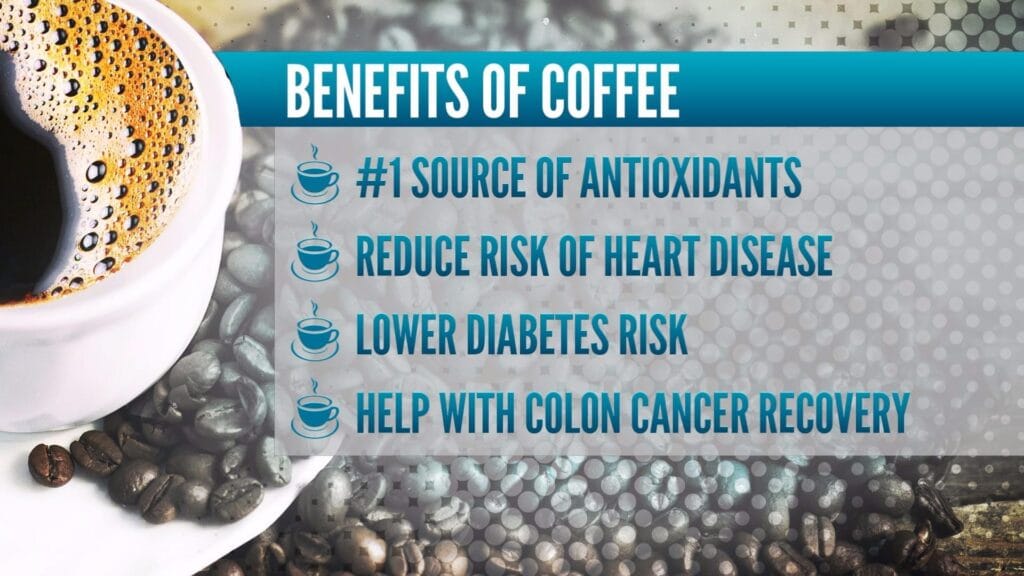
Have you ever wondered whether your morning cup of coffee does more than just wake you up? Coffee is one of the most popular beverages worldwide and is often praised for its potential health benefits. However, when it comes to detoxifying the liver and contributing to weight loss, the claims are often met with skepticism. This article delves into whether coffee truly has the potential to detoxify the liver and assist in weight loss, assessing scientific evidence and expert opinions to offer a comprehensive understanding.

Understanding Coffee: Composition and Benefits
To comprehend whether coffee aids in detoxification and weight loss, it is crucial first to understand what coffee consists of. Coffee beans are packed with compounds such as caffeine, antioxidants, and diterpenes, each having diverse impacts on human health.
Primary Components of Coffee
Caffeine: Caffeine is the most recognized compound in coffee, known for its stimulating effects on the central nervous system. It increases the release of neurotransmitters, like dopamine and serotonin, which can enhance mood, alertness, and cognitive function.
Antioxidants: Coffee is also rich in antioxidants, primarily polyphenols. These compounds help neutralize free radicals and reduce oxidative stress, potentially offering protective effects against certain diseases.
Diterpenes: Although less discussed than caffeine and antioxidants, diterpenes such as cafestol and kahweol present in coffee can impact liver enzymes and cholesterol levels.
By analyzing these compounds, it becomes evident that coffee offers a range of physiological effects that can play an indirect role in liver health and weight management.
Coffee and Liver Health
The liver plays a crucial role in detoxifying the body by metabolizing substances and filtering toxins out of the bloodstream. When discussing detoxification, it is essential to consider the liver’s natural detox processes and how coffee may influence them.
How Coffee Impacts Liver Function
Protective Role Against Liver Diseases
There is considerable scientific evidence suggesting that coffee may protect against liver diseases such as fibrosis and cirrhosis. Regular coffee consumption has been associated with lower liver enzyme levels, indicating a protective effect against liver inflammation and damage.
| Health Impact | Details |
|---|---|
| Reduced Liver Stiffness | Research shows that drinking coffee can lower the degree of liver stiffness, potentially delaying the progression of chronic liver conditions. |
| Decreased Risk of Cirrhosis | Habitual coffee drinkers have a lower risk of developing cirrhosis, particularly alcoholic cirrhosis and non-alcoholic fatty liver disease. |
Mechanisms Behind Liver Protection
The beneficial effects of coffee on liver health could be attributed to its high antioxidant content. Antioxidants help mitigate oxidative stress and inflammation, both of which are key contributors to liver damage. Additionally, caffeine and diterpenes in coffee may enhance the liver’s enzymatic functions, promoting better detoxification and metabolism.
Is Coffee a Detoxifying Agent for the Liver?
While some studies suggest coffee can indeed support liver health, it is crucial to note that coffee is not a detox agent. The term “detoxification” can imply cleansing the liver of toxins, which is primarily the organ’s own function. Coffee may assist this process by promoting liver health, but it does not directly remove toxins.
Learn How Coffee Aids In Detox
Coffee’s Role in Weight Management
When it comes to weight loss, coffee is often mentioned due to its metabolism-boosting capabilities. Examining how coffee influences weight involves understanding its effects on metabolism, appetite regulation, and fat burning.
Metabolism-Boosting Properties
Caffeine and Metabolic Rate
Caffeine is a well-known metabolic stimulant. It can enhance thermogenesis, the process of heat production in the body, thereby mildly increasing the number of calories burned at rest. This could potentially aid in weight management by creating a small increase in energy expenditure.
Fat Oxidation and Energy Utilization
Some research indicates that caffeine can increase the rate of fat oxidation during physical activity, enabling the body to use stored fat as an energy source more efficiently. This process can further contribute to weight management when combined with regular exercise.
Appetite Suppression and Energy Balance
Coffee may also affect appetite and calorie intake. Caffeine’s hunger-reducing properties can contribute to a decrease in total calorie intake, potentially assisting those aiming for weight loss. However, individual responses to caffeine can vary significantly, with some people experiencing a heightened sense of hunger.
The Role of Other Bioactive Compounds
Besides caffeine, other components in coffee, such as chlorogenic acids, may also influence glucose metabolism and fat storage, thus playing a potential role in weight control. These effects need more exploration, but early evidence suggests they could be beneficial.
The Evidence: Scientific Studies on Coffee and Health
Evaluating existing research on coffee and its effects on the liver and weight loss provides insight into its potential roles and limitations.
Research on Liver Health
Numerous studies have examined the relationship between coffee consumption and liver health. A meta-analysis of observational studies revealed an inverse relationship between coffee intake and liver enzyme levels, suggesting regular consumption might protect against liver inflammation.
Another study focused on patients with chronic liver diseases who consumed coffee regularly. These individuals exhibited slower disease progression and better overall liver function compared to non-coffee drinkers.
Evidence Supporting Weight Loss Benefits
A systematic review of randomized controlled trials indicates that coffee’s caffeine content can modestly increase the metabolic rate and fat oxidation rates. However, it is important to note that these effects are typically short-term and can be offset by habitual coffee consumption as the body develops tolerance to caffeine over time.
While coffee may aid in weight management, comprehensive lifestyle changes, including a balanced diet and regular physical activity, are essential for sustained weight loss.

Potential Risks and Considerations
Despite its benefits, coffee consumption carries certain risks, particularly when consumed in excess. It is important to be mindful of these potential drawbacks when considering coffee for liver health or weight loss.
Adverse Effects of Excessive Coffee Consumption
Caffeine Overconsumption: Excessive caffeine intake can lead to side effects such as insomnia, increased heart rate, jitteriness, and anxiety. Long-term overconsumption may also lead to caffeine dependence and withdrawal symptoms.
Impact on Liver Function Tests: While moderate coffee consumption supports liver health, excessive intake may interfere with certain liver function tests, potentially affecting diagnostic accuracy.
Coffee Additives and Overall Calorie Intake
When assessing coffee’s role in weight management, it’s essential to consider the impact of additives such as sugar, cream, and flavored syrups. High-calorie additions can offset any potential weight loss benefits, emphasizing the importance of consuming coffee in its pure form or with minimal additives.
Recommendations for Coffee Consumption
For individuals aiming to utilize coffee for its potential health benefits, moderation is key. Health experts generally recommend a daily intake of 3-4 cups for most adults, provided there are no underlying health conditions that contraindicate caffeine consumption.

Conclusion
The question of whether coffee can detox the liver and aid in weight loss embodies a complex interplay of biological processes, individual health factors, and lifestyle habits. While there is compelling evidence supporting coffee’s role in promoting liver health and offering modest weight loss benefits, it is not a miracle solution. Sustainable health improvements derive from a holistic lifestyle approach that incorporates a balanced diet, regular physical activity, and mindful consumption of beverages like coffee. As always, consulting with healthcare professionals can provide personalized insights tailored to individual health needs and goals.
